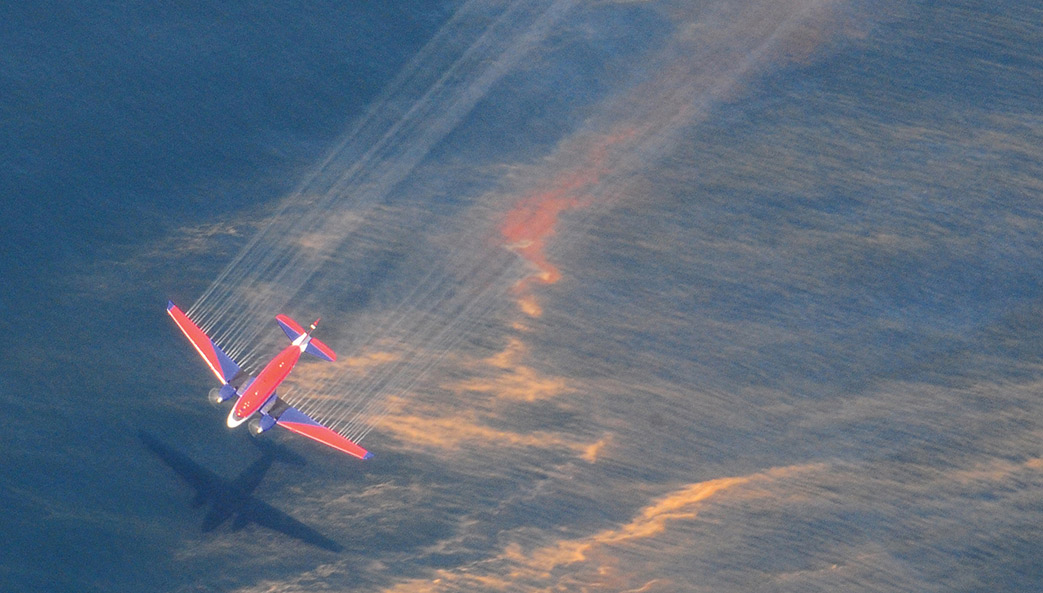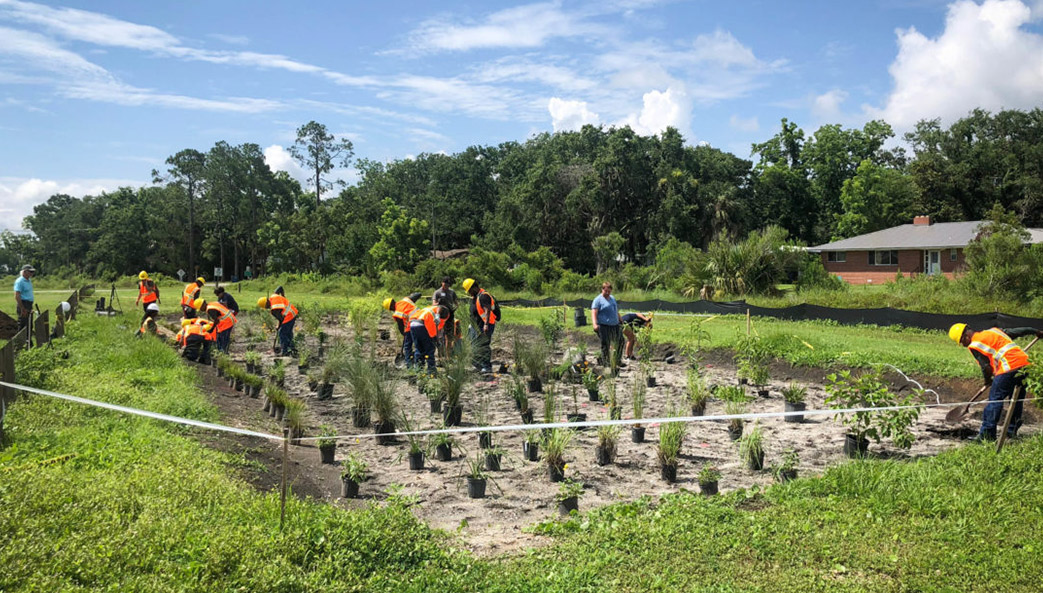The use of chemical dispersants to help clean up after maritime crude-oil spills may actually be inferior to just letting nature do its thing, according to a new study led by UGA marine scientists.
Based on laboratory-simulated conditions that mimicked conditions in Gulf of Mexico waters immediately following the 2010 Deepwater Horizon oil spill, the researchers found that dispersants, meant to stimulate certain microorganisms that degrade hydrocarbons, also retard other populations of naturally occurring oil-degrading microbes.
Chemical dispersants were applied in unprecedented volume to the sea surface and deep waters of the Gulf of Mexico after the 2010 spill, which released more than 750 million liters of oil into the Gulf.
In response, some 7 million liters of chemical dispersants, known to promote the growth of oil-degrading Colwellia microorganisms, were added to the Deepwater Horizon plume.
But by thus favoring Colwellia, the dispersants significantly altered the microbial composition of Gulf deep water. “The naturally occurring communities of oil-degrading microorganisms, especially Marinobacter, are quite proficient at degrading oil,” said the study’s lead author Samantha Joye, Georgia Athletic Association Professor of Arts and Sciences.
Yet “during the spill, Marinobacter were not abundant in deep water plume samples, possibly as a consequence of dispersant applications,” according to coauthor Sara Kleindienst, junior group leader at the University of Tübingen in Germany.
Indeed, “compelling results [from our simulations] show that oil biodegradation is more efficient in the absence of chemical dispersants,” said Joye.
In other words, dispersion of the oil spilled in the Gulf might have been faster and more extensive if chemical dispersants had not been added. What remains is to determine just how the intervention inhibited the Marinobacter.
Said Kleindienst: “Whether natural hydrocarbon degraders were outcompeted by dispersant degraders or whether they were directly affected by dispersant-derived compounds needs to be resolved in future studies.”
This research was supported by the Ecosystem Impact of Oil and Gas Inputs to the Gulf (ECOGIG) research consortium, which is funded by the Gulf of Mexico Research Initiative.
For more information about the project, visit ecogig.org.






